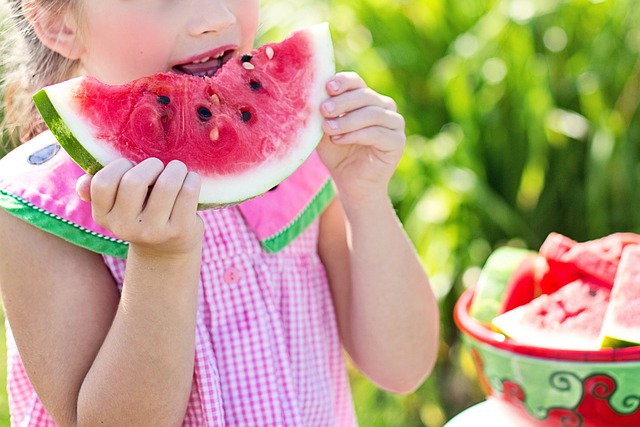Worryingly the life expectancy of some of today’s children will be years shorter than their parents’ for the first time in history if current trends of poor diet and lack of exercise continue.
Providing a varied menu that is well-balanced and considerate of allergies, intolerances, cultures, and dislikes (whether the parent or child) is a big challenge – and that’s just creating your dishes. Then you have to factor in outsourcing the ingredients, storage, preparation time, cooking time, and the actual logistics of will that dish work in the setting, as well as considering your setting and USP.
- Is it important to you that you serve dishes from around the world?
- Do you praise yourself on sourcing local produce?
- Is your menu based around ‘traditional home cooked’ meals?
- Do you create your meals based on their nutritional value?
- Have you planned your menu on what your parents would like you to serve?
- Do you have cooked meals delivered to your setting?
How and what children eat today will have an effect on their health, and how they thrive, both mentally and physically, especially in their first five years when children develop at a phenomenal rate.
So what is the importance of nutrition in early years?
- Protein builds muscles and is found in eggs, lean meats and cheese.
- Calcium strengthens bones and is found in milk, yoghurt and seeds.
- Iron makes healthy blood and is found in red meats and leafy greens.
- Carbohydrates provide energy and are found in whole grain bread, potatoes and apples.
- Essential fats help the body absorb other vitamins and are found in fish, avocados and nuts.
So how do these nutrients help child development?
- Mind – Everything from attentiveness, memory and learning are impacted by the foods we eat. The brain uses more than 20% of your daily energy consumption – more than any other organ in your body. Foods that have shown to improve memory and cognitive functions include; fish, broccoli and berries. Refined sugar, bad fats and additives can affect a child’s mind, even making them feel hazy and less focused. Serotonin (which helps regulate sleep, appetite and moods) is mostly produced in the digestive system, meaning nutrition also has an impact on emotions and how children feel.
- Body – Correct nutrition provides children with energy, enthusiasm and gumption to explore, investigate and live life to the max. As well as boosting the body’s immune system, it reduces risk of disease and obesity, and helps these young bodies to grow strong.
Encourage children to explore food away from the pressure of the dinner table. Provide sensory opportunities to investigate with food, look at the differences between raw and cooked food, discuss where our food comes from, try and grow some. Taste the rainbow and create an activity chart that the children can fill in:
- What did they play with?
- What did they taste?
- What was their favourite?
- What did they dislike?
- What have they tried at home?
Allowing children to be involved in meal preparation and cooking is a great way to encourage them to try new textures and flavours, however this is not always practical or safe in a childcare setting, although allowing children to be involved with the serving of their meals can offer an excellent opportunity to become aware of the food they are eating. For younger children this may be restricted to an accessible water table or self service at snack time.
Many settings now use colour coding systems for food requirements, not only does this make peers aware of others food choices and needs, but allows individuals to take ownership of their dietary needs in a safe and supportive environment. They may be anything from a child not liking their food to touch or cultural diets to allergies and intolerances.
I spoke with Julieta Matayoshi De Oliveira, an Early Years Nutrition Consultant, and Darryl Reardon, Head of Sales and Marketing from The Professional Nursery Kitchen.
Darryl highlighted the relationship The Professional Nursery Kitchen has with The Early Years Nutrition Partnership (EYN).
“The EYN is working to improve the future health outcomes of young children by setting a standard for nutrition practice in early years settings. EYN dieticians independently review our menus to ensure they meet the specific needs of children in the Early Years.”
Darryl also mentioned how The Professional Nursery Kitchen follows the Better Eat, Better Start recommendations for portion size, stating “ it is best practice to allow children to serve themselves a portion they are confident with from a correctly portioned serving dish”
Julieta spoke about her passion in ensuring children have the best start in life. “The early years really is the only opportunity to help children gain the dietary habits which will take them through the rest of their lives.” Juileta’s role is to support nurseries with nutrition, allergies, fussy eating and the 5532-a-day approach to perfect portions saying:
“A healthy balanced diet for children aged one to five is based on four food groups, which provide a range of essential nutrients that children need to grow and develop. The table produced by The British Nutrition Foundation shows the daily recommended portions of the four food groups.”
We also discussed children’s eating habits and that Generation Z (born between 1997 – 2012) will be the first generation with a lower life expectancy than their parents.
The Infant and Toddler Forum asked 1,000 parents about their child’s mealtimes and here’s what they found:
- 15% of under 3s are fed adult convenience foods/ ready meals for most meals
- 29% of the under 3s are tucking into takeaway meals at least once a week
- 29% of under 3s have chocolate and sweets almost every day
- 23% of under 3s have crisps almost every day
- 16% of under 3s have fizzy drinks almost every day
With the eylog system you can create your menus and set a repetitive sequence.
The menu of the day then populates into the practitioner app as part of the daily diaries for staff to mark what the child has eaten. This can be entered in one entry by selecting numerous children from the children’s screen. Once the daily diary has been shared or published this is then visible to the parents on their eyparent app.

